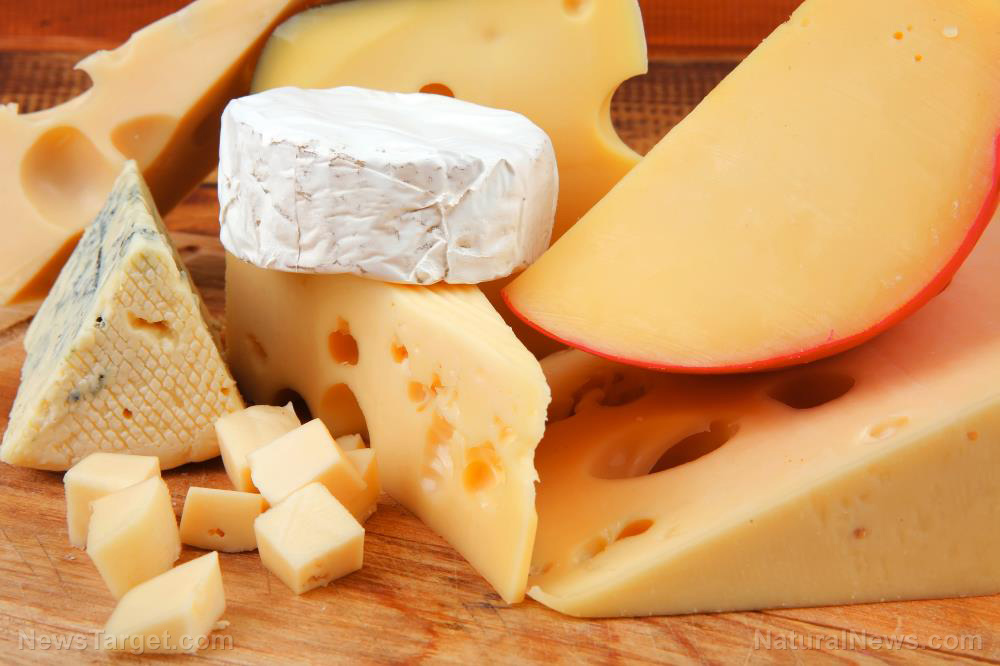 Parler
Parler Gab
Gab
- Eat smart, not perfect. The MIND diet – rich in beans, berries, fish, leafy greens, nuts, olive oil and whole grains – supports cognitive functioning, reduces inflammation and fuels long-term brain health.
- Move to improve – any way you can. Avoiding a sedentary lifestyle is critical. Gentle regular movement (whether it's light aerobics, stretching, walking or resistance/strength training) can improve blood blow, preserve memory and support balance. The key is choosing safe, enjoyable activities that match your ability.
- Challenge your mind daily. Keep your brain active by engaging in hobbies, learning new skills or socializing regularly. Mental stimulation builds cognitive resilience at any age.
- Sleep and de-stress to protect your brain. Quality, restorative sleep and daily stress management (like deep breathing or mindfulness exercises) help the brain repair, reset and stay sharp.
- Your lifestyle matters more than your genes. Up to 80 percent of cognitive decline risk is linked to modifiable habits – not hereditary – making prevention a powerful everyday choice.
A healthy brain starts with your plate
For a sharper mind, start with what's on your plate – because what you eat doesn't just feed your body, it fuels your brain. The MIND diet, a research-backed blend of the Mediterranean and DASH diets, is gaining attention for its role in reducing cognitive decline. It emphasizes beans, berries, fish, legumes, nuts, olive oil, poultry and whole grains while limiting red meat, processed foods and sweets. In a major two-year U.S. study involving over 2,100 adults aged 60 to 79, participants who adopted the MIND diet, paired with brain stimulation and exercise, showed improvements on memory and thinking tests. Their cognitive performance matched that of people one to two years younger. Experts stress that the brain is intricately linked to the body, and dietary choices affect not just memory but also emotional balance, hormones and sleep. Omega-3 fatty acids from fatty fish and plant-based sources like algae supplements and walnuts play a key role in supporting long-term memory and reducing brain inflammation. Complex carbohydrates, such as legumes, oats, sweet potatoes and quinoa, provide steady fuel, while antioxidants in foods like berries and dark leafy greens help protect brain cells from damage. (Related: Support brain health and improve cognitive function with these herbs and spices.) And don't forget hydration. Even mild dehydration can impair concentration and cognitive performance. Water remains the gold standard, but coconut water and herbal teas offer hydrating alternatives with added nutrients.Move your body, energize your mind
Physical movement is one of the most effective – and overlooked – ways to support brain health. Moderate-intensity activities, such as brisk walking, dancing and swimming, improve circulation, reduce inflammation and stimulate the production of brain-nurturing proteins. In the same U.S. study, participants who exercised four times a week and engaged in strength and flexibility training twice weekly saw tangible cognitive benefits. Scientists emphasize that it is less about intensity and more about regularity and commitment. Researchers note that even small amounts of daily movement, like climbing up and down stairs or stretching between tasks, contribute to mental clarity. In fact, sitting still for extended periods has been shown to hinder brain function. Daily movement – even in short bursts – can counteract that decline. Mental fitness isn't about memorizing trivia or solving puzzles. It is about challenge, engagement and novelty. And you don't need a brain-training app to get results. Experts agree that brain benefits can come from exploring a new creative hobby, joining a discussion group, learning a new language or picking up a musical instrument. (Related: What do sewing and photography have in common? They’re exercise for your brain, which is key to aging well mentally.) Long-term studies show that regularly challenging the brain helps build "cognitive reserve" and form new neural connections that can buffer against age-related decline. It is less about finding the perfect activity and more about staying curious and mentally active consistently.Sleep, stress and stillness: The brain's hidden essentials
In this fast-paced world, sleep is often sacrificed. But the brain doesn't function optimally without it. Sleep allows the brain to consolidate memories, eliminate toxins and repair itself. Adults should aim for seven to nine hours of quality, restorative sleep per night. A consistent bedtime, a cool, dark sleeping environment and reduced screen time before bed all contribute to better rest. Clinical studies link poor sleep to faster memory loss, reduced learning ability and even structural changes in the brain. Managing stress is equally important. Prolonged stress floods the brain with cortisol, a hormone that, when unregulated, can shrink the hippocampus, the center of learning and memory. The encouraging news? Calming practices, such as deep breathing, mindfulness techniques and exercises, and journaling can actively reverse some of this damage over time.Connection is cognition: Why social life matters
Social connection is one of the most underestimated drivers of brain vitality. Research shows that loneliness increases the risk of dementia by up to 26 percent. Regular social interaction, on the other hand, stimulates cognitive regions tied to emotional regulation, language and memory. From joining a walking group or virtual book club to volunteering or engaging in weekly phone calls with loved ones and friends, meaningful connection matters, especially as you age. New studies also point to hearing loss in midlife as a strong and under-recognized predictor of cognitive decline. That makes early screening and intervention a simple but powerful protective step. These aren't just wellness trends -- they're science-backed strategies that empower you to stay mentally sharp, emotionally grounded and deeply alive. Maintaining brain health isn't just about adding years to your life, it's also about adding life to your years. Watch this video to learn how to keep your mind sharp. This video is from the Daily Videos channel on Brighteon.com.More related stories:
Study explains how diet, exercise and the endocannabinoid system contribute to healthy aging. Why older adults should do resistance training. Regular exercise can keep dementia at bay – adding more hours reduces the brain’s aging process.Sources include:
MedicalXpesress.com NIA.NIH.gov Healthline.com HopkinsMedicine.org Brighteon.comCordyceps: From ancient medicinal fungus to modern-day superfood
By Ava Grace // Share
Governments continue to obscure COVID-19 vaccine data amid rising concerns over excess deaths
By patricklewis // Share
Tech giant Microsoft backs EXTINCTION with its support of carbon capture programs
By ramontomeydw // Share
Germany to resume arms exports to Israel despite repeated ceasefire violations
By isabelle // Share










